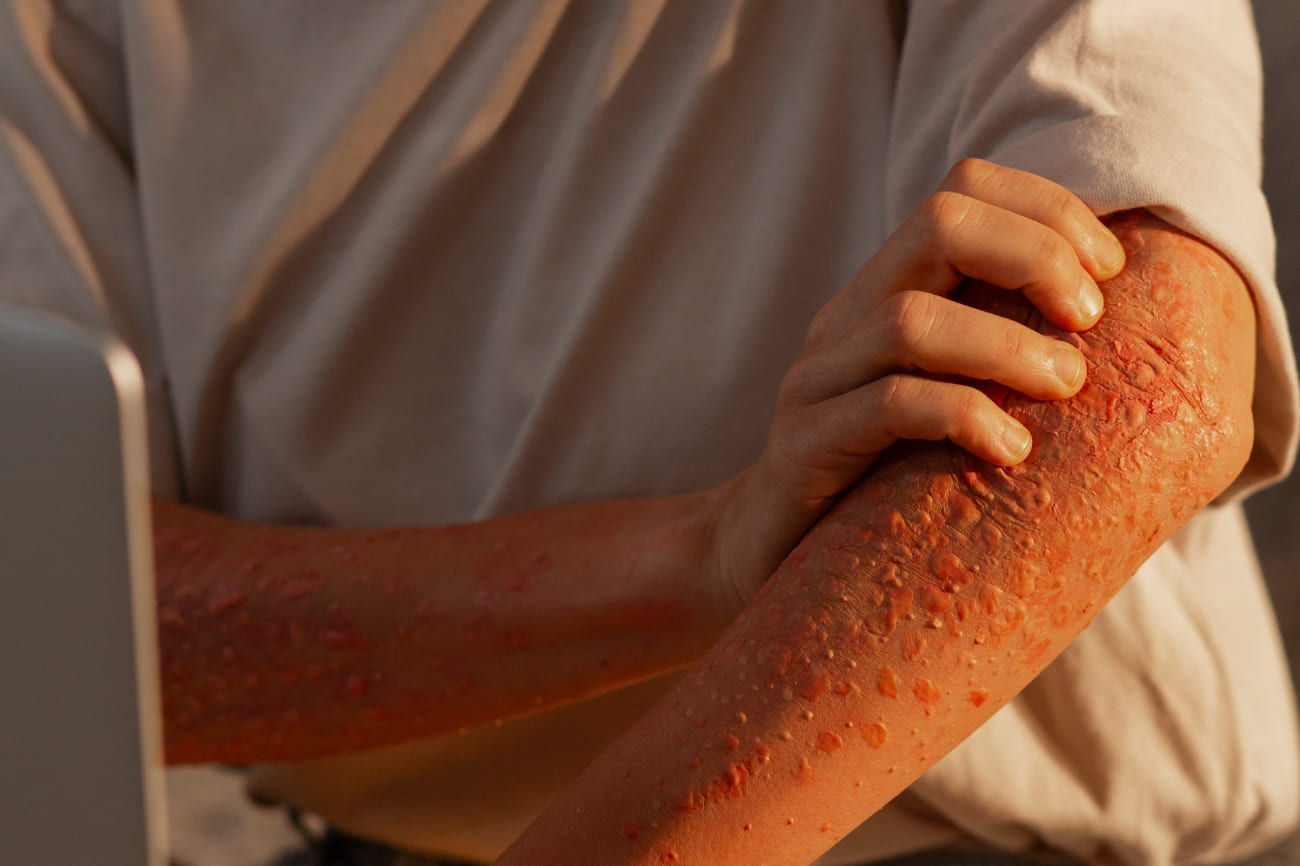Breaking the Myth: Is Psoriasis a Microbial Infection?

Psoriasis is a complex and often misunderstood condition. Despite affecting millions worldwide, myths surrounding its cause continue to circulate, with one common question being, "Is psoriasis a microbial infection?" This misconception has led to unnecessary confusion and stigma for those living with the condition.
In this blog, we will debunk this common myth and help you better understand psoriasis and its causes.
-
What is Psoriasis?
Psoriasis is a chronic autoimmune condition characterized by the rapid growth of skin cells, leading to thick, red, scaly patches. These patches can appear anywhere on the body but commonly occur on the elbows, knees, scalp, and lower back. The condition is non-contagious, yet its visible symptoms often lead to social stigma and misinformation.
-
Is Psoriasis a Microbial Infection?
A common myth is that psoriasis is a microbial infection. However, bacteria, viruses, or fungi do not cause psoriasis. The autoimmune disease occurs when the immune system mistakenly attacks healthy skin cells. Genetic and environmental factors, rather than an infectious agent, trigger this immune response.
Misunderstanding psoriasis as an infection can lead to unnecessary stigma and fear. Unlike infections, psoriasis cannot be spread through touch, making it safe to interact with those affected without concern. Awareness and education are essential in debunking this myth and reducing the social burden on those living with psoriasis.
While infections do not cause psoriasis, they can trigger flare-ups in susceptible individuals. For instance, streptococcal throat infections have been linked to the onset of guttate psoriasis, a subtype characterized by small, drop-like lesions. Managing infections promptly can help reduce the risk of triggering psoriasis flare-ups.
-
Symptoms of Psoriasis
Psoriasis presents a range of symptoms that vary in severity from person to person. Common symptoms include red patches of skin covered with silvery scales, dry and cracked skin that may bleed, itching or burning sensations, and thickened or ridged nails. These symptoms can fluctuate, with periods of remission followed by flare-ups.
The appearance of psoriasis can differ depending on the type. Plaque psoriasis, the most common form, manifests as raised, inflamed patches. Guttate psoriasis appears as small, dot-like lesions, while inverse psoriasis leads to smooth, red lesions in body folds. Each type requires tailored treatment strategies for effective management.
-
Managing Psoriasis
Effective management of psoriasis involves a combination of treatments tailored to the individual's needs. Topical treatments, such as corticosteroids and vitamin D analogs, are often the first line of defense. These medications reduce inflammation and slow skin cell growth, easing symptoms.
Light therapy involves exposing the skin to controlled ultraviolet light to reduce inflammation and slow skin cell production. It benefits those with widespread psoriasis or who are unresponsive to topical treatments. Systemic treatments, such as oral medications and biologics, target the immune system for moderate to severe cases. Regular healthcare follow-up is crucial to monitor progress and adjust treatment.
Addressing the question, "Is psoriasis a microbial infection?" reveals how easily misinformation can spread. As we’ve discussed, psoriasis is a complex condition driven by multiple factors, not microbes. By dispelling these myths, we empower people with psoriasis to manage their condition without stigma and with a healthy lifestyle and diet.
For those seeking further information and support, numerous resources are available to guide individuals on their psoriasis journeys.
